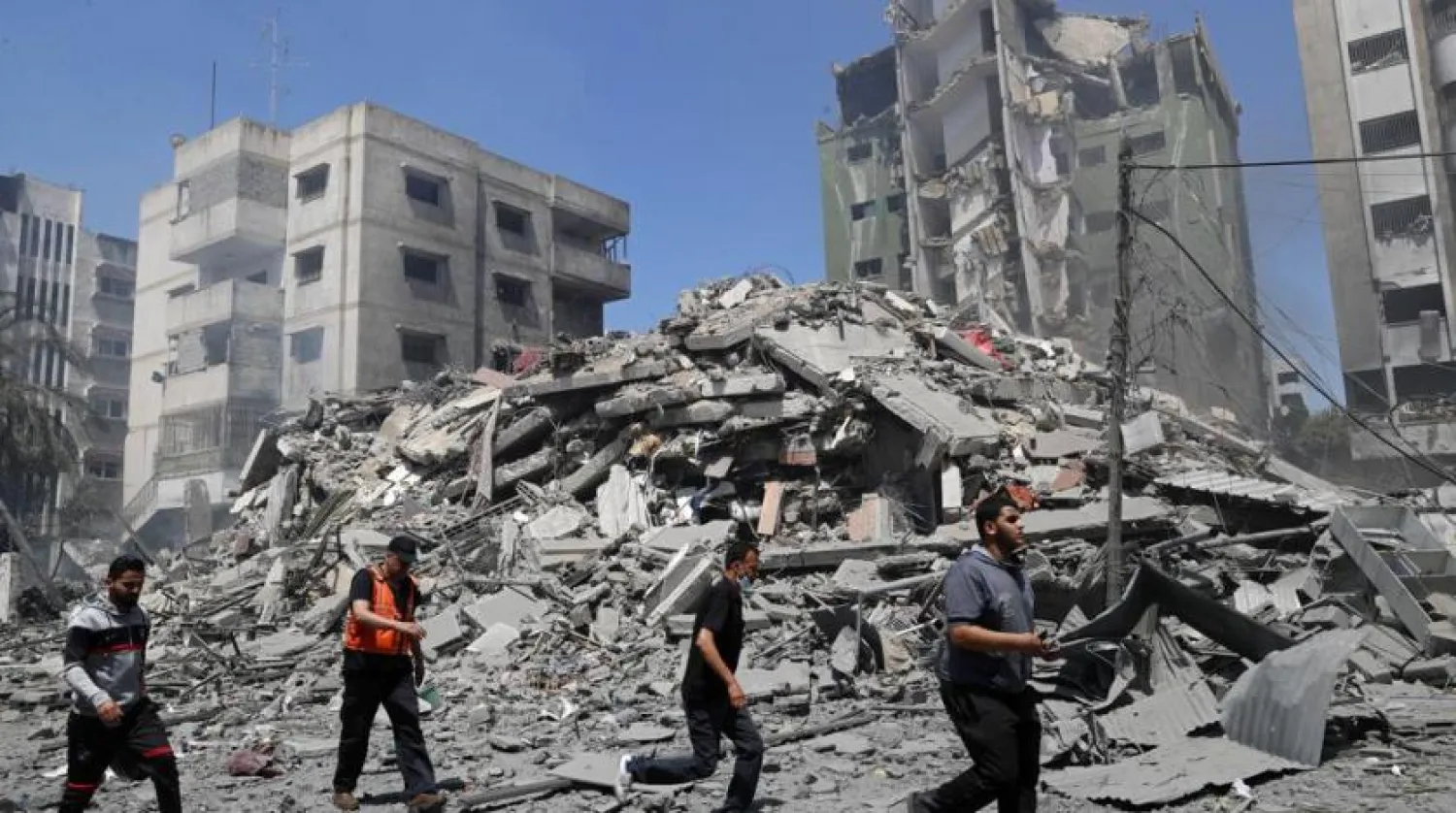Overlooking war-battered Gaza from the tenth floor of a tower block, Palestinian human rights lawyer Raji Sourani has a new bundle of files — on victims of last month’s war with Israel.
For years, he has been building cases in the Israeli-blockaded enclave to be submitted to the International Criminal Court.
The 66-year-old lawyer has already filed dozens of cases with The Hague-based court since 2015, after the Palestinian Authority ratified the court’s Rome Statute, AFP reported.
The cases represent Palestinian victims of war crimes committed by Israel, according to the lawyer.
For Sourani, the ICC chief prosecutor’s announcement in March of a full investigation into the situation in the Israeli-occupied territories was a day of hope.
Israel dismisses the ICC as a “political body” and says that it is carrying out its own probe into alleged war crimes perpetrators.
Sourani, who founded the Gaza-based Palestinian Center for Human Rights in 1995, said an ICC investigation will allow victims to restore their “dignity” and see “proper justice.”
“We are dreamers, because I mean, if you look around us, the fact is it’s so sad, so bad. It’s totally unbalanced,” he said, weighing up his legal struggle against the might of the Israeli state apparatus.
Sourani and his team of 60 document everything they can to try to prove the Jewish state deliberately targets civilians in its battle against Gaza’s rulers, the Islamist movement Hamas.
The Israeli army blames Hamas for deliberately placing military targets in densely populated areas.
His list is long; from the Israeli blockade since 2007 to victims’ accounts of the 2014 Gaza war, to the suppression of the 2018 “Great March of Return” protests when Palestinians demanded the right to go back to homes their families fled or were expelled from during the Jewish state’s creation in 1948.
Now, he has added the latest Hamas-Israel conflict.
Photographs of destroyed buildings, detailed lists of victims, reports on missiles used by the Israeli army, mapping of bombed locations; his painstaking work is stored in dozens of filing cabinets.
The lawyer, who studied in Egypt and Lebanon, said the last conflict was lopsided.
Israel is “the mighty army in the Middle East, the one challenging Iran, Hezbollah, and bombing Syria,” he said, waving to the devastation its bombardment wreaked on Gaza, a crowded territory of two million people.
The May 10-21 conflict killed 260, including some fighters, according to Gaza authorities.
In Israel, 13 people were killed, including a soldier, by rockets fired from Gaza, the police and army said.
The Israeli army, which calls Hamas a “terrorist” organization, denies targeting civilians and insists it does all it can to avoid “collateral damage.”
Not enough, according to Sourani.
“Wars are between armies,” he said. “Civilians must be avoided.”
Sourani listed family after family killed in Israeli strikes.
“Is Hamas the Shorouk Tower, the Hanadi Tower, the Jala Tower?” he asked angrily, naming commercial and residential tower blocks reduced to piles of smoking rubble because Israel claimed they housed Hamas bases.
“What have the water pipelines to do with Hamas? What has the electricity, the sewerage system, to do with Hamas?” he said, referring to infrastructure impacted in the conflict.
To those who argue Israel has the right to self-defense against Hamas rockets, the lawyer points to a power imbalance: One side has fighter jets, while the other side is a population under blockade.
“Gaza is the largest open-air prison,” said Sourani. “They want to send us to the Stone Age.”
Sourani said that when he spent three years in Israeli jails, he used “every minute” to study Hebrew and humanitarian law.
“I have lived my whole life under occupation. No one can say that the Israeli occupation is just,” he said.
In his book-lined office sits a bust of Robert F. Kennedy — a human rights award in memory of the late US senator’s belief that individual moral courage can overcome injustice.
Sourani, who received the award in 1991 along with Israeli lawyer Avigdor Feldman, is proud of the honor — but said he was disappointed that Joe Biden, then US vice president, had also received it in 2016.
“We want people who defend what Robert Kennedy said — justice for all,” he said, criticizing Biden over his insistence on Israel’s right to self-defense.
“We don’t want to see anything more than the rule of law, justice and dignity for the victims we represent,” he said.
“We have no personal wish for revenge, but I think Palestinians are entitled to justice and dignity.”









